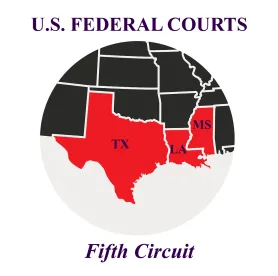On Feb. 22, 2022, the U.S. District Court for the Western District of Texas denied the Restaurant Law Center and Texas Restaurant Association’s much-watched emergency motion seeking to enjoin nationwide enforcement of the U.S. Department of Labor’s (DOL) new rule regulating when employers may take a tip credit against their employees’ wages under federal law.
Restaurants and other businesses employing tipped workers (many of whom may have been taking a “wait and see” approach in light of the litigation) must now review their tip credit and pooling practices. The DOL’s changes to the regulations pose significant practical challenges for operators seeking to take a tip credit and, if not followed, could result in costly litigation and significant liability.
The DOL’s Tip Credit Regulations
Generally, under the Fair Labor Standards Act (FLSA), employers may take a tip credit against their tipped employees’ wages and pay them at lower hourly wage rates, provided employees customarily and regularly receive at least $30 per month in tips, are given proper notice of the tip credit, and receive enough tips to earn at least the full minimum wage. At present, 43 states and the District of Columbia provide for a tip credit. Only Alaska, California, Minnesota, Montana, Nevada, Oregon, and Washington prohibit tip credits.
The DOL historically has limited the amount of non-tip-producing work tipped employees can perform at a tip credit rate to 20% of their work time (commonly referred to as the “80/20” rule). In November 2018, the DOL—under the Trump administration—purported to rescind the 80/20 rule in favor of a more flexible standard, but new regulations implementing the standard never took effect.
The DOL—under the Biden administration—initially delayed implementation of the Trump administration rule but then engaged in a separate rulemaking process which ultimately led to new tip credit regulations. These regulations, which went into effect Dec. 28, 2021, effectively reinstate the “80/20” rule but impose even more restrictions on employers seeking to take a tip credit.
Now, under federal law, employers can only take a tip credit for the time tipped employees spend performing work that:
-
Produces tips (e.g., providing service to customers, such as a restaurant server’s taking orders from guests and serving them food and beverages); or
-
Directly supports tip-producing work (e.g., preparing for or otherwise assisting customer service work, such as a restaurant server’s rolling silverware, folding napkins, and setting tables; it also may include downtime waiting to perform customer service).
Critically, employers can no longer take a tip credit if an employee performs “directly supporting work” for a “substantial amount of time”—that is, no tip credit may be taken for “directly supporting work” that exceeds:
-
20% of the employee’s weekly hours paid at a tip credit rate; or
-
30 continuous minutes.
In other words, an employer must pay the full minimum wage for any “directly supporting work” that is greater than 20% of an employee’s weekly hours paid at a tip credit rate or more than 30 continuous minutes. Any “directly supporting work” over 30 continuous minutes is excluded from the 20% calculation, since the employer must now pay for that time at full minimum wage.
Significantly, work that is “not part of the tipped occupation” (i.e., neither tip-producing nor directly supporting) must also be paid at the full minimum wage. If tipped employees perform work not considered part of a “tipped occupation,” then employers cannot take a tip credit for the time employees spend performing such duties—even if they spend less than 20% of their time or fewer than 30 continuous minutes engaged in this non-tipped work.
What this means is that a restaurant cannot take a tip credit against a server’s wages for time spent by the server cleaning the kitchen or bathrooms or preparing food, including salads (although the rule’s preamble contains exceptions, such as for adding dressing to pre-made salads). If a server performs these tasks, the restaurant must pay the server at the full minimum wage for any time spent engaged in these activities.
Next Steps for Restaurant and Hospitality Industry Employers
Given the court’s recent ruling and the compliance challenges posed by the DOL’s new tip credit regulations, restaurants and other hospitality industry employers should consider taking the following steps immediately:
-
Review operations (including their scheduling and timekeeping practices, written job descriptions, and assignment of side work to tipped employees) to ensure proper work assignments and tracking of time spent performing tip eligible work;
-
Consider paying tipped employees the full minimum wage for time worked before and after service (where permitted by state and local law) and/or modifying their hours and hiring non-tipped employees to perform side work;
-
Audit applicable wage and hour practices (including tip credit notices, tip policies, reporting procedures for payroll discrepancies, and wage statements);
-
Train managers on the DOL’s requirements; and
-
Consult with counsel regarding any changes to existing policies, practices, or procedures necessary to comply with the new tip credit regulations.
Employers also should be mindful that the DOL’s rule only concerns employer obligations under the FLSA. Employers may be subject to different or additional restrictions applicable to tipped employees under state and local laws, such as the New York Hospitality Industry Wage Order. The DOL’s new tip credit regulations do not supersede these laws, and covered employers must comply with both the FLSA and any applicable state and local laws.
Stay Tuned: Litigation Over the New Tip Credit Regulations Continues
Although some operators may perceive the court’s ruling as a setback, it is not the “final word.” In denying the preliminary injunction, the court did not consider the merits of the plaintiffs’ claims. Instead, the court merely concluded the plaintiffs failed to establish a likelihood of irreparable harm, which is a fundamental requirement to issue an injunction.
As the court has not decided the merits of the matter, the legal challenge to the DOL’s new tip credit regulations will likely continue.





 />i
/>i

